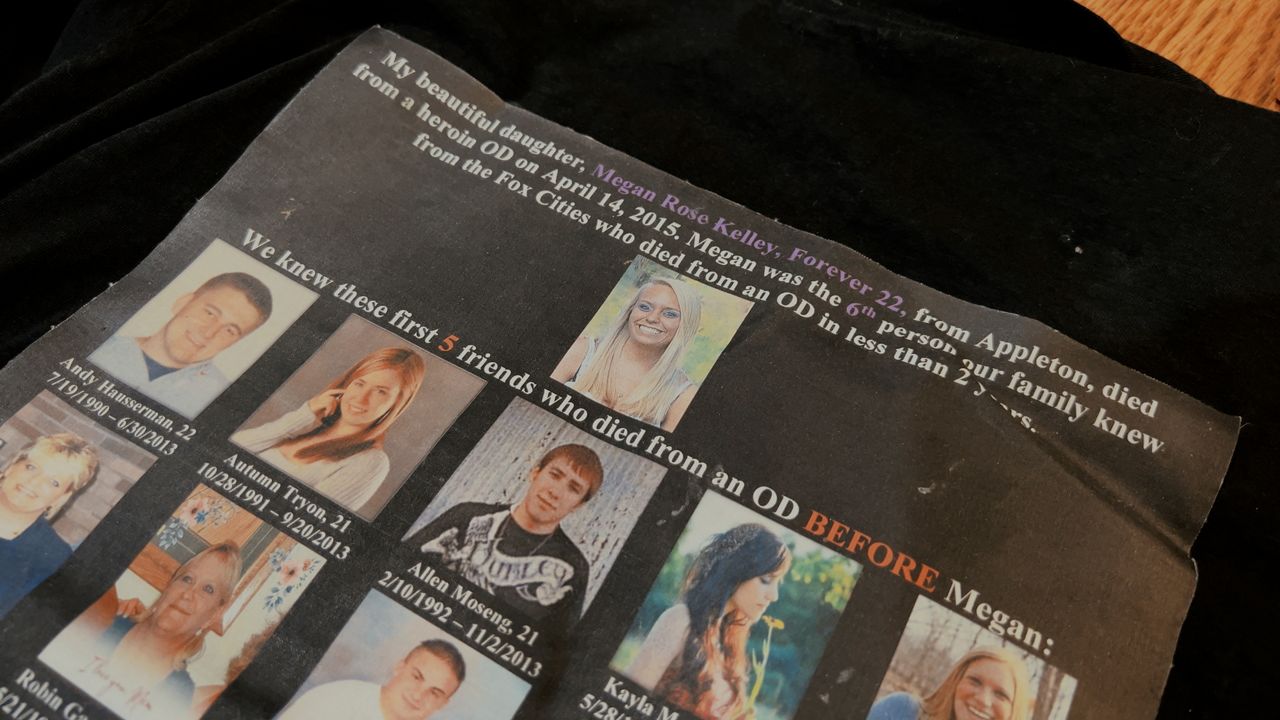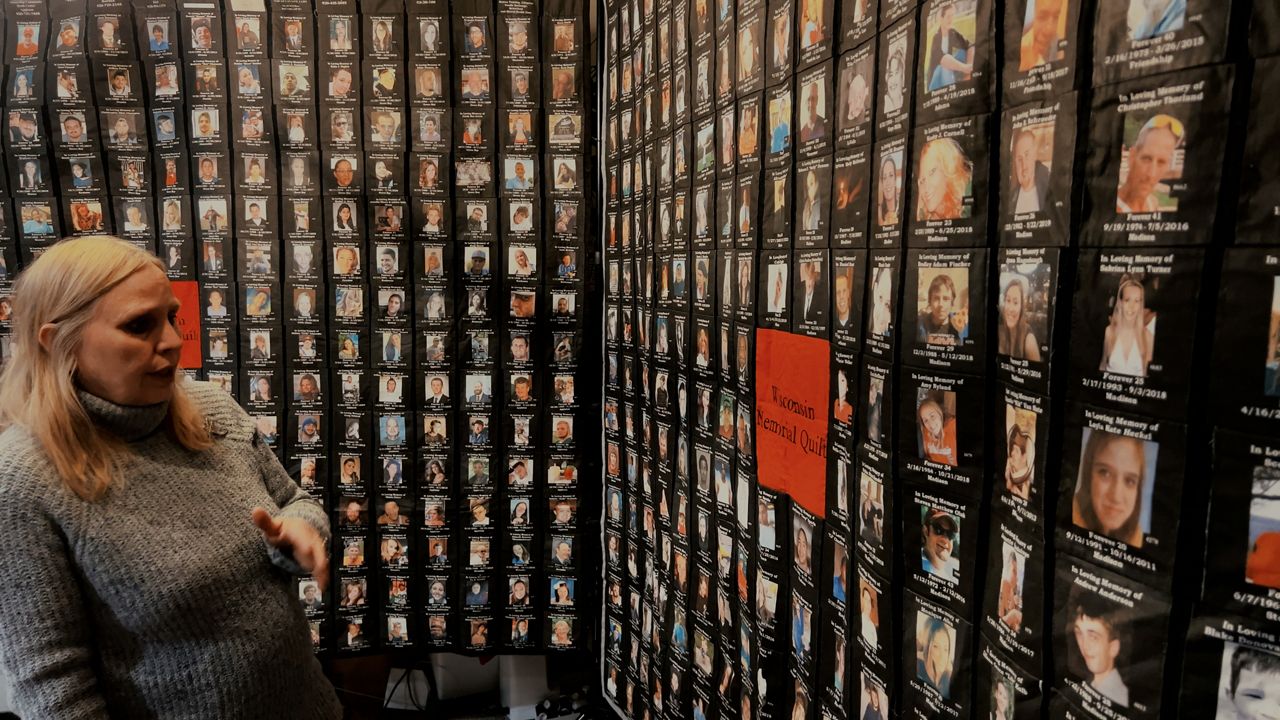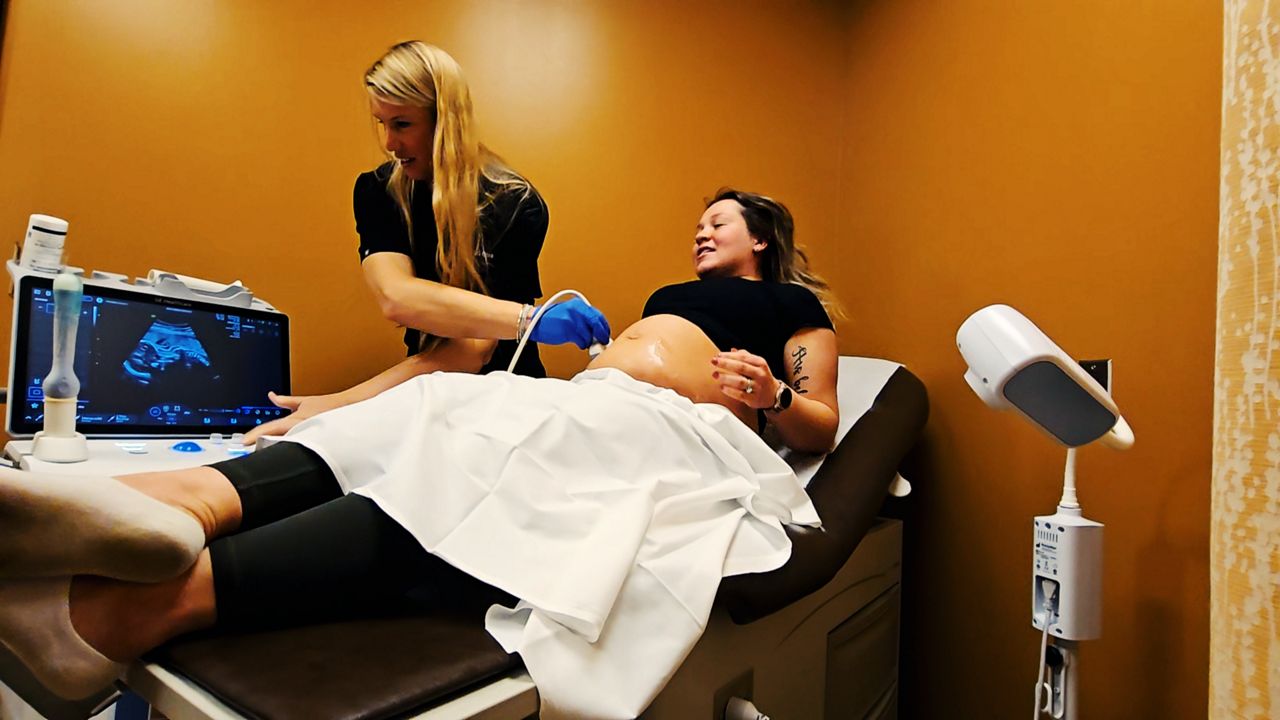APPLETON, Wis. — Addiction is a disease that does not discriminate. That’s something Bev Kelley-Miller found out first hand in 2015 when her daughter Megan Miller died from an overdose.
“My daughter was the nicest person you would ever want to meet. She would help you cook, give people clothes, she would do whatever she could for everyone,” said Bev Kelley-Miller.
Bev Kelley-Miller first noticed her daughter had an addiction problem in 2013 when her oldest daughter brought it to her attention.
“Her oldest sister, Michele told me I needed to talk to her because she was addicted to [oxycodone],” said Bev Kelley-Miller.
But Megan Miller was not addicted to oxycodone, she was addicted to heroin. Bev Kelley-Miller didn’t find that out until her daughter overdosed.
“I said to the nurse, what is wrong with my daughter? Why is she hooked up to the IV?”
The nurse told Bev Kelley-Miller that at the age of 21, Megan Miller had drug-induced pancreatitis, which most often occurs in 30 to 40-year-olds.
“I never thought this could happen to me and I don’t think most parents think this can happen to them either,” said Bev Kelley-Miller.

After leaving the hospital, Megan Miller went through detox and ultimately ended up using again. This time, the drug would leave her alone in an apartment building instead of recovering in a hospital bed.
“I don’t even know if I said I love you the last time I talked to her,” said Bev Kelley-Miller.
Bev Kelley-Miller said she believes her daughter’s life could have been saved if the laws in Wisconsin were different at the time. She said the day Megan Miller overdosed, no one called the police because they were worried about the legal ramifications.
“At the funeral, [her] supplier went through and told me he was the last person to see Megan alive and he was on extended supervision and Megan was on probation, so he knew he would go back to prison and Megan would go back to prison right away,” said Bev Kelley-Miller.
Since Megan Miller’s death, the 911 Good Samaritan Law has been passed, but that law only protects the person calling in the overdose. The user would still face prison time.
“We cannot be making an arrest the priority. It has to be saving a life because every overdose is preventable,” said Bev Kelley-Miller.
The number of overdoses has only been climbing since 2015, a year that saw 878 deaths. In the year 2020, 1,503 Wisconsin residents died due to drug overdoses.
Bev Kelley-Miller keeps track of as many of those people as she can and sews them onto her Wisconsin Memorial Quilts.
“The thing is, when I would stand by the quilts, people would say, ‘they don’t look like they are addicted’ and I would say, ‘exactly,’” said Bev Kelley-Miller.

The quilts consist of hundreds of mothers, fathers, children and grandparents from all across Wisconsin. Bev Kelley-Miller said she knows everything about all the faces on her quilts.
“There is not really a look. They look like you, they look like me, they look like our loved ones,” said Bev Kelley-Miller.
Bev Kelley-Miller brings the quilts to the state capitol, to high schools, and she has even made her way to Washington D.C. with them. She said she hopes to show the world that addiction has no look.
“I collected the obituaries because the obituaries give a voice back to the voiceless,” said Bev Kelley-Miller.
She said she encourages people to talk to her about her daughter because those stories and those memories are the only things she has left. It brings her joy every time she thinks back on the good times.










